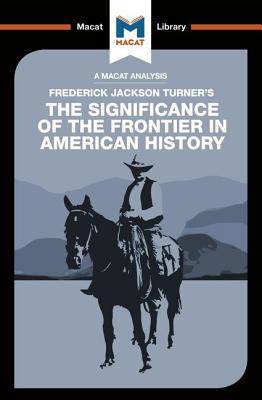
- Retrait gratuit dans votre magasin Club
- 7.000.000 titres dans notre catalogue
- Payer en toute sécurité
- Toujours un magasin près de chez vous
- Retrait gratuit dans votre magasin Club
- 7.000.000 titres dans notre catalogue
- Payer en toute sécurité
- Toujours un magasin près de chez vous
An Analysis of Frederick Jackson Turner's the Significance of the Frontier in American History
Joanna Dee Das, Joseph TendlerDescription
Frederick Jackson Turner's 1893 essay on the history of the United States remains one of the most famous and influential works in the American canon.
That is a testament to Turner's powers of creative synthesis; in a few short pages, he succeeded in redefining the way in which whole generations of Americans understood the manner in which their country was shaped, and their own character moulded, by the frontier experience. It is largely thanks to Turner's influence that the idea of America as the home of a sturdily independent people - one prepared, ultimately, to obtain justice for themselves if they could not find it elsewhere - was born. The impact of these ideas can still be felt today: in many Americans' suspicion of "big government," in their attachment to guns - even in Star Trek's vision of space as "the final frontier." Turner's thesis may now be criticised as limited (in its exclusion of women) and over-stated (in its focus on the western frontier). That it redefined an issue in a highly impactful way - and that it did so exceptionally eloquently - cannot be doubted.
Spécifications
Parties prenantes
- Auteur(s) :
- Editeur:
Contenu
- Nombre de pages :
- 112
- Langue:
- Anglais
- Collection :
Caractéristiques
- EAN:
- 9781912127863
- Date de parution :
- 04-07-17
- Format:
- Livre broché
- Format numérique:
- Trade paperback (VS)
- Dimensions :
- 129 mm x 198 mm
- Poids :
- 113 g







